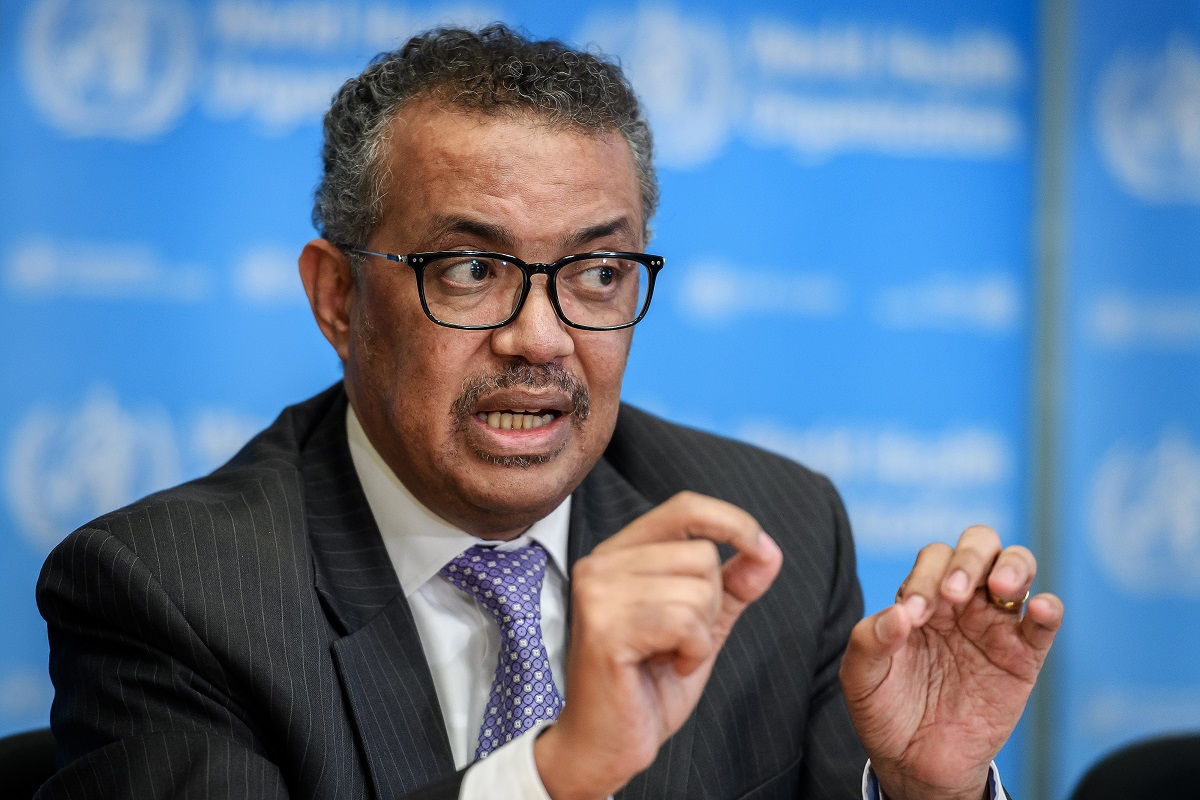The World Health Organization on Friday warned that world is going through a “new and dangerous phase” of the coronavirus pandemic with people tiring of lockdowns despite the disease’s accelerating spread.
The warning came as it emerged the virus was present in Italy in December, months before its first confirmed cases and about the same time as the disease was first reported in China.
Advertisement
The deadly disease has now killed more than 454,000 people and infected 8.4 million people worldwide, is surging in the Americas and parts of Asia even as Europe starts to ease restrictive measures.
Lockdowns imposed to halt the spread of the disease have caused crippling economic damage, but the WHO said the pandemic still posed a major threat.
During a virtual press briefing, WHO director-general Tedros Adhanom Ghebreyesus said, “The world is in a new and dangerous phase. Many people are understandably fed up with being at home… but the virus is still spreading fast”.
According to the ISS insitute, Italian researchers discovered genetic traces of SARS-CoV-2 — as the virus is officially known — in samples of waste water collected in Milan and Turin at the end of last year, and Bologna in January.
Italy’s first confirmed cases were not until February.
The results “help to understand the start of the circulation of the virus in Italy,” the ISS said.
Italy was the first European country to be hit by the virus and the first in the world to impose a nationwide lockdown, in early March.
On the other side are countries such as Italy and Spain that were the first and hardest hit by the pandemic, having already been crippled by overstretched finances.
Dutch Prime Minister Mark Rutte said it was “uncertain” whether there would be a deal when leaders are set to meet in person in mid-July, adding that it may not even be finalised until after the summer.
Chinese scientists have also said that the virus likely emerged in a market that sold wildlife in the central city of Wuhan in December, but Beijing officials have recently suggested that it may have originated elsewhere.
In April, WHO chief warned that most countries were still in the early stages of tackling the pandemic.
Some countries that thought they had the new coronavirus under control were witnessing a resurgence in cases, while there were troubling upward trends in Africa and the Americas, the director-general earlier added.
Chinese authorities said studies of genome data, which it had shared with the WHO , suggest the new outbreak in Beijing “came from Europe”, but is different from what is currently spreading there.
The body has been heavily criticised by the United States for its handling of the pandemic but Tedros brushed off calls for him to resign.
Ghebreyesus cautioned countries that have began loosening lockdown laws and said ‘easing restrictions is not the end of the epidemic in any country’.
Earlier, the US had announced a decision to halt its funding to the WHO, at a time when the specialized UN agency for international public health is coordinating a global response to the COVID-19 pandemic.
(With inputs from agency)











